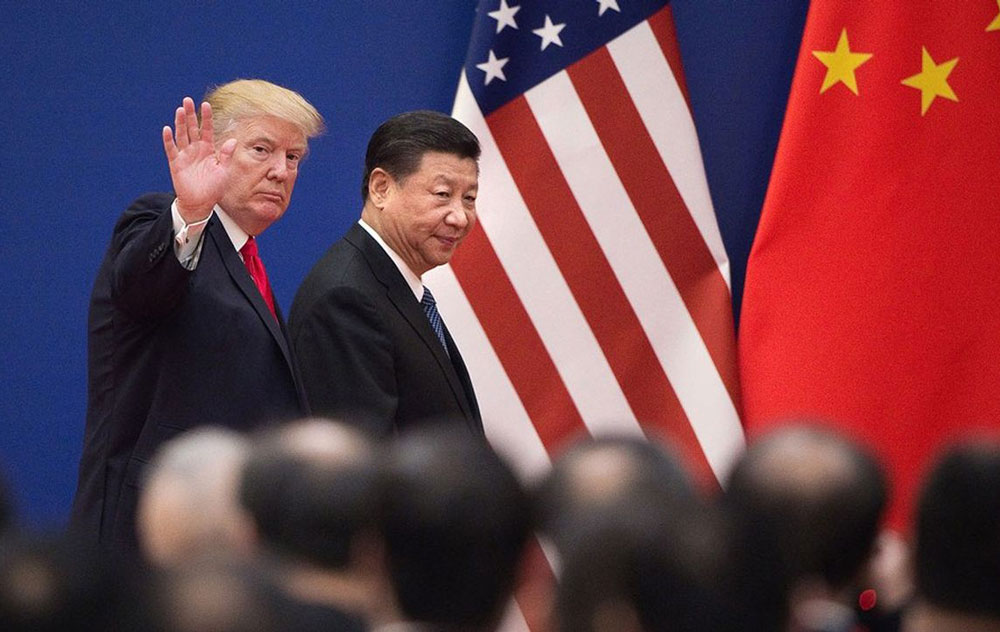As Donald Trump prepares to return to the White House, analysts predict that Chinese investments in the United States will remain subdued—continuing the downward trend that began during his first term. With the president-elect’s tough stance on China, coupled with ideological and regulatory barriers on both sides, a revival of large-scale Chinese investments appears improbable.
A Declining Trend Since Trump’s First Term
Chinese investments in the U.S. have plummeted drastically since Trump’s initial presidency. Data from the American Enterprise Institute reveals that only $860 million flowed into the U.S. in the first half of 2024, down from $1.66 billion in 2023. This is a stark contrast to the $46.86 billion recorded in 2017, during the peak of Chinese investment in the U.S.
High-profile acquisitions, such as the purchase of New York’s Waldorf Astoria hotel, were once emblematic of China’s robust presence in the American economy. However, regulatory measures in both countries have since curbed such investments. Beijing’s tightening of capital outflows in 2017 and U.S. policies restricting investments in key sectors have significantly reduced the flow of Chinese capital into the U.S.
Trump’s Hardline Policies and Ideological Mismatch
President-elect Trump has shown little interest in incentivizing Chinese companies to invest in the U.S. Speaking earlier this month, Rafiq Dossani, an economist at the RAND Corporation, described the situation as an “ideological mismatch,” with Trump’s rhetoric focusing on keeping Chinese companies out of the U.S. while allowing the import of low-end goods.
Trump has also threatened additional tariffs on Chinese goods, signaling a continuation of his aggressive trade policies. During his acceptance speech for the Republican nomination, Trump emphasized his intention to bring manufacturing jobs back to the U.S. by using tariffs and incentives to push companies to build locally. “The way they will sell their product in America is to BUILD it in America, and ONLY in America,” he said.
Small-Scale Investments and Joint Ventures
While large-scale Chinese acquisitions have dwindled, smaller investments and joint ventures have taken their place. For instance, Chinese battery manufacturer EVE Energy partnered with U.S. companies Cummins, Daimler Truck, and PACCAR to build a battery factory in Mississippi. This project, set to begin production in 2027, is expected to create over 2,000 jobs.
According to Danielle Goh, a senior research analyst at the Rhodium Group, Chinese companies are increasingly favoring joint ventures or greenfield investments—building businesses from scratch—over acquisitions. However, these smaller deals often go unnoticed by regulators, making them easier to approve.
Rising U.S. Resistance to Chinese Investment
In addition to federal restrictions, individual states have grown wary of Chinese investments. Over 20 states have recently passed or updated laws restricting land purchases by Chinese citizens and companies. This growing skepticism reflects broader concerns about national security and economic competition.
Compounding the issue, Chinese hackers reportedly targeted a U.S. government office responsible for reviewing foreign investments in December, as part of a broader cyberattack on the Treasury Department. While this incident highlights tensions in the U.S.-China relationship, it also underscores the challenges Chinese companies face in gaining regulatory approval for investments.
The Unpredictability of Trump’s Policies
While Trump has occasionally used tariffs and trade policies to encourage foreign investment, his approach remains unpredictable. For example, during his first term, he lifted restrictions on Chinese telecom company ZTE after the Chinese government invested $1 billion in a Trump Organization-affiliated project in Indonesia. However, such deals are rare and often contentious.
Derek Scissors, a senior fellow at the American Enterprise Institute, pointed out that even if Trump signals openness to Chinese investment, long-term projects cannot materialize overnight. “Trump saying the U.S. is open to Chinese companies in 2025 is no guarantee [even] for 2029,” he said.
Outlook: A Challenging Road Ahead
With U.S.-China relations at a low point and Trump’s administration poised to take a hardline stance, the prospects for a resurgence in Chinese investments remain bleak. Analysts agree that large-scale investments, like those seen during the 2016-2017 period, are unlikely to return in the foreseeable future. Instead, small-scale partnerships and localized investments may remain the primary avenue for Chinese companies seeking a foothold in the U.S. market.
As the global economy continues to grapple with geopolitical tensions, the evolution of U.S.-China economic relations under Trump’s leadership will undoubtedly have far-reaching implications for both nations.











